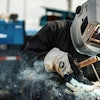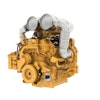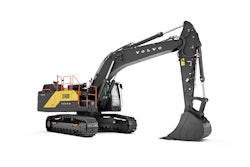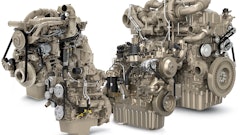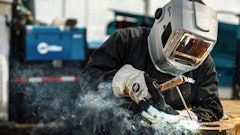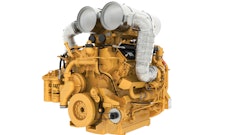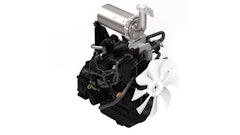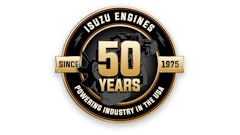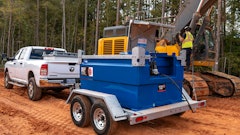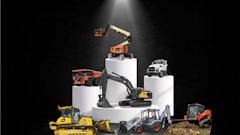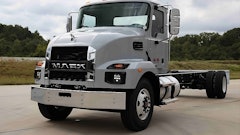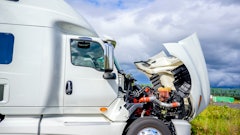
Starting from 1933, ammonia engines began to be made. While slight advances were made before the 2000s, there was not the same motivation to have a working and efficient ammonia engine as there is now. Although there is an incentive to improve the ammonia engine and fuel capabilities and to create a better ammonia engine option, it has not been easy.
The construction industry has seen many engine and fuel alternatives come out. Due to the significant pollution risk of heavy machinery, emissions regulations have tightened, and the demand for eco-friendly options has increased. While ammonia engines haven't hit the market for heavy-duty vehicles just yet, there is a potential for them in the future. Ammonia still has a way to go before it can be widely used in engines, but there are some important things you should know about why.
Here are things you should know about ammonia as a fuel.
What is Ammonia and Why isn't it Used More?
Ammonia is a chemical compound of hydrogen and nitrogen. Simply, ammonia is a toxic substance sourced from a few things; fertilizer, waste, and decomposition. Ammonia can be dangerous to various populations -often fish- depending on the pH level and concentration. With that being said, ammonia has the potential to be a risky type of fuel to use.
Widespread ammonia use could pose a more dangerous type of greenhouse gas. If ammonia is not managed properly, nitrous oxide could be formed.
According to the Proceedings of the National Academy of Sciences of the United States of America (PNAS), nitrous oxide is “a long-lived greenhouse gas around 300 times more potent than carbon dioxide and a major contributor to the thinning of the stratospheric ozone layer.”
Princeton University scientists shared research data and claimed, “Our findings reveal that improper ammonia use can have disruptive environmental impacts, requiring careful scrutiny, but that optimal ammonia management can greatly reduce environmental concerns.”
With these concerning possibilities, ammonia as a fuel has not been as heavily pursued as the other alternative fuel options like renewable diesel, hydrogen, and electricity.
Ammonia’s Potential in the Future
Even though it has not been as popular as other options, ammonia has been used in cars, maritime vessels, and trains. Until further advancements are made, ammonia engines typically have to run on a mixture of ammonia and gasoline.
“Most of the examples [of ammonia vehicles] consider ammonia blend with more reactive fuel. So it means that there [is] less than 90% of ammonia. Could be 40%, 50%, some 60% but never more than 90 or 95% of ammonia,” said Christine Rousselle, professor at the University of New Orléans in France.
Ammonia can be corrosive and because of this, it is something that needs to be further looked into for the injectors and spark plugs. While Rousselle explained that the corrosivity is not likely to be much of a problem for the engine itself, she noted that injectors are beginning to be made specifically for ammonia for this type of issue. At the moment, there are still no spark plugs made especially for ammonia.
It is still not fully known if ammonia as a fuel can be used in current engines or if there will have to be an engine made from scratch.
Rousselle said, “My point of view - a 100% ammonia engine is possible, but a clean ammonia engine is not so easy. [There] are still a lot of challenges to be resolved.”
Although ammonia has not been fully nailed down as a fuel just yet, ongoing testing and research are occurring to find out whether ammonia should be one of the top alternative fuels out there. The construction industry could eventually see ammonia as a viable option, so keep a lookout for more updates in the future.


